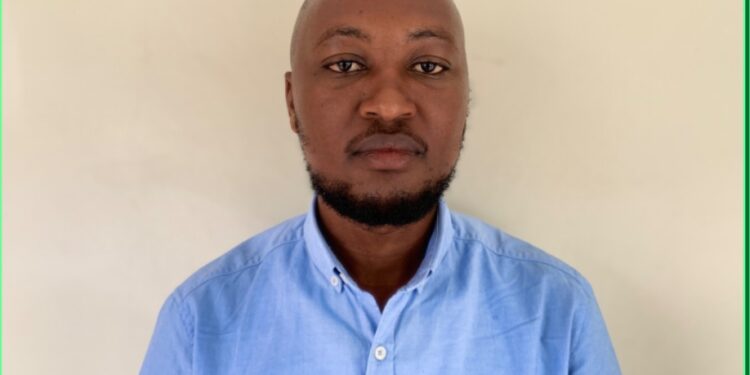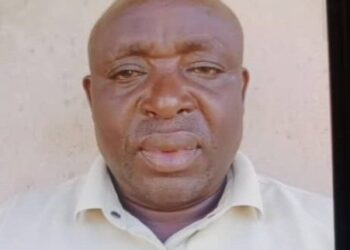‘’Menstrual health remains a critical public health area and it matters for girls’ and women’s learning, health, and equal rights.’’ – Frank Byaruhanga, Human rights and communications practitioner
Sexual and Reproductive Health and Rights (SRHR) is still a very important health and human rights issue in Uganda.
This is true for young people in the country too. One big part of SRHR that often gets ignored is how people deal with their period. Having a period is a normal thing the body does. It is a big part of reproductive health, but the topic is still met with discomfort, wrong ideas, and not enough support.
In Uganda, some traditions, money problems, and a lack of basic needs make period poverty worse. It means many girls miss school, face health problems, and their confidence goes down. There is not enough help, so these young people cannot always take care of themselves the way they should.
Below, the article looks at menstrual health as part of a larger SRHR topic. This covers young people, those making policy, parents, and leaders of both religious and cultural groups. The information points out problems people face, work now being done, and some steps that can help make things better for menstrual health in Uganda.
Menstrual hygiene is important for the health, education, and equal rights of girls and women. Good menstrual care helps girls and women deal with their periods in a way that lets them feel respected. It also lets them take part in school, social events, and work life without shame or being left out. In Uganda, about one in four girls between 12 and 18 leaves school after getting their period for the first time. This is because there are not enough products for period care and not enough help at school or at home.
Around 60% of girls say they miss school while on their period. They stay home because they do not have pads, bathrooms are not clean or safe, and they fear feeling ashamed. Unsafe period care can lead to infections, girls feeling bad about themselves, and missing more school. These numbers show there is a real need to see period care as a problem that affects public health and fairness for everyone.
Cultural and religious beliefs have a big effect on how people in Uganda handle menstrual hygiene. Many see periods as something shameful or not clean, and this leads to girls facing limits in what they can do every day (Akullu, 2022). For example, some groups have rules that stop girls who are on their period from cooking, going to religious events, or taking part in social activities, which makes them feel left out and alone (Plan International, 2022). Families and cultural groups often keep these rules going.
Because of this, people do not talk freely about periods, and girls do not get the support or information they need.
Economic gaps make period poverty worse. Many girls cannot buy sanitary pads. They end up using unsafe things like rags or bags filled with soil (Daily Monitor, 2024). A report from UNESCO shows that one out of ten girls in Sub-Saharan Africa, including Uganda, misses school during her period. This means they lose about 13 days of learning each term (CEHURD, 2024). Many schools do not have enough water, bathrooms, or ways to deal with used pads. There are no private toilets or places to throw pads away, so managing periods at school is hard (UNFPA ESARO, 2024). More than half of the schools in Uganda do not have working toilets or water. Because of this, up to 31% of girls who get their period miss school (UNFPA ESARO, 2024).
Young people, mostly girls in their teen years, deal with many tough things when it comes to handling their periods in a respectful way. This is because there is a lot of wrong information out there. When people do not get enough facts about periods, they may feel scared, ashamed, or pick up bad habits. In 2022, Plan International Uganda did a study and found that just 48% of girls had the right facts about periods before they had their first one (Plan International, 2022).
Many girls do not have much good science knowledge about menstruation.
Most of the time, they learn from friends or their mothers. These people may pass on wrong ideas because they do not have enough education themselves (Akullu, 2022). Parents, and especially fathers, do not get involved in talking about menstrual health. They see it as only for women, so families do not give much support (Plan International, 2025).
Religious and cultural groups have a big role in setting community rules. But they do not often include strong, clear SRHR education in their lessons. They miss chances to fight against negative ideas about menstruation (CEHURD, 2018).
Uganda has tried to improve menstrual hygiene management with the Menstrual Hygiene Management Charter (2015) and National Guidelines for MHM (2019). But putting these plans into action is still weak. This is because there is not enough money and support from leaders. For example, the 2024/25 national budget gives very little money to programs for young people’s sexual and reproductive health and rights.
Also, the 2016–2021 National Resistance Movement manifesto said it would give menstrual hygiene products to schools. The Sexuality Education Framework, which came out recently, wants MHM to be part of school lessons. It also says schools should work with religious and cultural groups to help this plan (CEHURD, 2018).
Civil society groups have for a long time led efforts to make it normal to talk about periods and to help people use reusable sanitary pads (Akullu, 2022). For example, UNICEF, with help from KOICA, gives money to school health clubs. These clubs teach girls how to make their own sanitary pads. This helps girls and other people by removing, or at least lowering, the cost of buying pads (UNICEF Uganda, 2020).
Religious and cultural groups are now seen as important in the work for SRHR. Programs such as the Kisakaate of the Nabagereka of Buganda and Pastor Jessica Kayanja’s girl-power conference give space to talk about menstrual health inside the local culture (CEHURD, 2018). The media, including Radio Sapientia and CBS Radio, which are run by religious groups, help to share SRHR information with people. Even so, these radio channels are not used as much as they could be (CEHURD, 2018).
Young people, especially girls, need to speak up for their SRHR. They can do this by joining school clubs or community groups that help others learn about menstrual health. Peer educators, like Sonia from Togo, show how much difference young people can make when they lead the way. They help remove shame and help others learn more (Plan International, 2025). Boys should also be part of these talks. Including them helps everyone work for gender equality and break taboos. This way, they all make sure their friends feel supported.
Policymakers have to focus on putting current promises into action. This means giving out free sanitary pads in schools. It also means making WASH facilities better. The Ministry of Education should make the Sexuality Education Framework bigger. It should add age-appropriate MHM lessons for everyone, not just girls. They need to use what works best, based on facts. Policies should look at money problems, too. This could be done by giving money to help with the cost of menstrual products and by helping people make cheap and reusable pads in their area.
Parents, and mostly mothers, have a big part in teaching girls about periods. Fathers need to be a part of this, too. In Nepal, Plan International worked with fathers. This helped families talk more about SRHR. Parents should talk about the truth and help stop wrong ideas from spreading. They need to give the right facts and help their daughters get menstrual products and safe places.
Religious and cultural leaders should use their voice to help spread good, fact-based SRHR education. Bringing MHM lessons into youth activities, like Sunday schools or cultural camps, can make periods seem normal and help take away any shame (CEHURD, 2018). Working together with groups like Reproductive Health Uganda to give out dignity kits and hold talks can also make their work even stronger (RHU, 2022).
To solve the problems, all stakeholders and many other groups like CSOs, NGOs work together. This should include young people, leaders, parents, and faith or cultural groups. When people talk about it more, break old taboos, and help others get needed supplies, Uganda can build a Period friendly World. In this world, girls and women can do well without the problem of period poverty. Everyone must work as one, trust facts, and stand up for young people’s rights, especially girls and women. This is the way to make sure that everyone knows menstrual health is a right for all.
Frank Byaruhanga, Human rights and communications practitioner
[email protected]






Discussion about this post